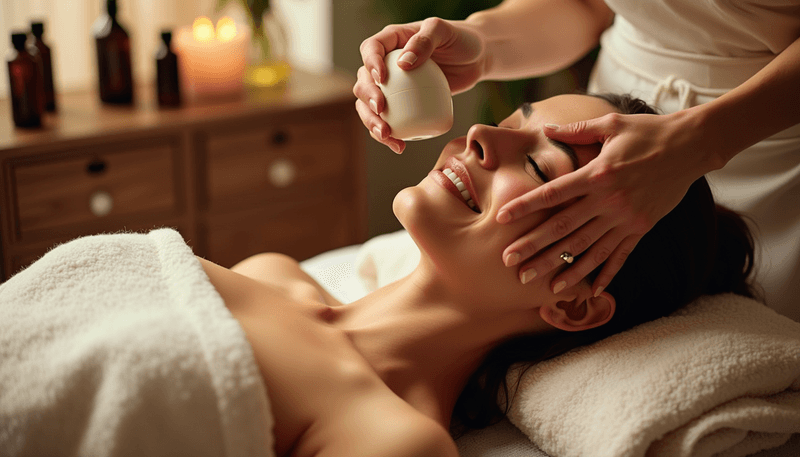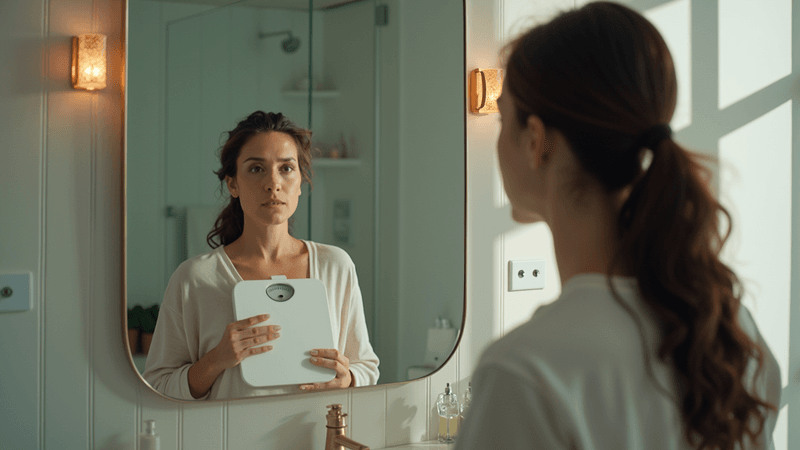Menopause: More Than Just Hot Flashes

Ladies, let's chat about something that affects us all but often gets swept under the rug: menopause. It's not just about hot flashes and mood swings – there's so much more to this natural life transition. I've been diving deep into some fascinating research, and I can't wait to share what I've learned with you. So grab a cup of tea (or your beverage of choice), and let's explore the world of menopause together.
First things first, let's address the elephant in the room. Menopause isn't a disease or something to be feared. It's a natural part of our journey as women, marking the end of our reproductive years. But just because it's natural doesn't mean it's always a walk in the park. That's why I was thrilled to come across a comprehensive review that looks at menopause management from a holistic perspective.
The study, titled "Beyond the Hot Flashes: Exploring the Holistic Approaches to Menopause Management – A Review," caught my eye because it promises to go beyond the usual discussions about hormone replacement therapy. As someone who's always been interested in a more integrated approach to health, I was eager to see what insights it could offer.
Insight 1: Menopause is a Natural Transition, Not a Disease
Let's start with a paradigm shift. The research emphasizes that menopause is a natural physiological occurrence, not a pathological condition. This might seem obvious, but in a world that often medicalizes women's experiences, it's a refreshing perspective.
Think of menopause as a rite of passage, similar to puberty or pregnancy. It's a transformation that marks a new chapter in our lives. Just as a caterpillar doesn't view its metamorphosis into a butterfly as a disease, we shouldn't view menopause as an illness to be cured.
"How would your approach to menopause change if you viewed it as a natural transition rather than a medical condition?"
Practically speaking, this shift in perspective can have a profound impact on how we approach menopause:
-
Embrace the change: Instead of fighting against menopause, try to embrace it. This could mean celebrating the wisdom and experiences you've gained over the years.
-
Focus on overall health: Rather than just treating symptoms, focus on maintaining overall health through diet, exercise, and stress management.
-
Seek support: Connect with other women going through the same transition. Sharing experiences can be incredibly empowering and reassuring.
-
Educate yourself: Understanding what's happening in your body can help you feel more in control. Don't be afraid to ask questions and seek reliable information.
Remember, every woman's experience of menopause is unique. What works for one person might not work for another, and that's okay. The key is to approach this transition with curiosity and self-compassion.
Insight 2: Hormone Therapy Isn't One-Size-Fits-All
One of the most interesting aspects of the research is its nuanced approach to hormone therapy. For years, hormone replacement therapy (HRT) was seen as the go-to solution for menopausal symptoms. But as with many things in medicine, we've learned that it's not that simple.
The study points out that there are different types of hormone therapy, each with its own benefits and risks. It's not just about estrogen anymore – we're looking at combinations of estrogen and progesterone, as well as different delivery methods (pills, patches, gels, etc.).
Here's where it gets interesting: the effectiveness and safety of hormone therapy can vary depending on a woman's age, health history, and specific symptoms. It's like trying to find the perfect pair of jeans – what fits one person beautifully might not work for another at all.
"If hormone therapy were a outfit, what would yours look like? Tailored and specific to you, or off-the-rack and one-size-fits-all?"
So, what does this mean for you? Here are some practical takeaways:
-
Personalized approach: If you're considering hormone therapy, work with your healthcare provider to find a regimen that's tailored to your specific needs and health profile.
-
Regular check-ins: If you're already on hormone therapy, don't just set it and forget it. Regular check-ins with your doctor can help ensure that your treatment is still appropriate as your body changes.
-
Stay informed: Keep up with the latest research on hormone therapy. New studies are constantly refining our understanding of its benefits and risks.
-
Consider alternatives: Remember that hormone therapy isn't the only option. Depending on your symptoms and preferences, there might be non-hormonal treatments worth exploring.
I remember when my friend Sarah was struggling with severe hot flashes. Her doctor initially prescribed a standard dose of estrogen, but it didn't seem to help much. After some trial and error, they found that a lower dose combined with some lifestyle changes made a world of difference. It's a great reminder that persistence and personalization can lead to better outcomes.
Insight 3: Complementary Therapies Can Play a Valuable Role
Now, here's where things get really exciting. The research delves into various complementary therapies that can help manage menopausal symptoms. We're talking about approaches like hypnosis, aromatherapy, and reflexology. It's like opening up a whole new toolbox for dealing with menopause!
What I love about this is that it acknowledges that women are more than just a collection of hormones. Our experiences of menopause are influenced by our minds, our emotions, and our overall well-being. By incorporating complementary therapies, we're taking a more holistic approach to menopause management.
Let's break down some of these therapies:
-
Hypnosis: This isn't about swinging watches or stage tricks. Clinical hypnosis can help reduce hot flashes and improve sleep quality. It's like giving your mind a gentle nudge to help your body cope better.
-
Aromatherapy: Certain essential oils, like lavender or peppermint, might help with symptoms like anxiety or headaches. It's a pleasant and non-invasive way to support your well-being.
-
Reflexology: This ancient practice involves applying pressure to specific points on the feet or hands. Some women find it helpful for reducing stress and improving overall comfort.
-
Phytoestrogens: These plant-based compounds that mimic estrogen in the body can be found in foods like soy, flaxseeds, and certain herbs. While more research is needed, some women find them helpful for managing symptoms.
"If you could design your own menopause 'toolkit', what complementary therapies would you include?"
The beauty of these complementary therapies is that they can often be used alongside conventional treatments. It's not an either/or situation – you can create a personalized approach that combines the best of both worlds.
Here are some ways you might incorporate these therapies into your life:
-
Experiment safely: Try different complementary therapies to see what works for you. Start with low-risk options like aromatherapy or guided relaxation techniques.
-
Seek qualified practitioners: If you're interested in therapies like hypnosis or reflexology, look for certified professionals with experience in menopause management.
-
Keep a symptom diary: Track your symptoms and how they respond to different therapies. This can help you and your healthcare provider fine-tune your approach.
-
Be patient: Complementary therapies often work more subtly than conventional medications. Give them time to take effect before deciding if they're helpful for you.
I'll never forget when my yoga instructor, a vibrant woman in her 60s, shared how a combination of yoga, meditation, and aromatherapy helped her sail through menopause with minimal discomfort. It was a powerful reminder that we have more tools at our disposal than we might think.
Conclusion: Embracing a Holistic Approach to Menopause
As we wrap up our chat about menopause, I hope you're feeling more empowered and informed. The key takeaway from this research is that menopause management doesn't have to be a one-size-fits-all approach. We have options – from hormone therapy to complementary therapies – and the power to create a personalized strategy that works for us.
Remember:
- Menopause is a natural transition, not a disease.
- Hormone therapy can be tailored to your individual needs.
- Complementary therapies can offer additional support and relief.
As we navigate this journey, let's approach it with curiosity, self-compassion, and a willingness to explore what works best for us individually. Menopause might be a universal experience for women, but our paths through it can be as unique as we are.
"What's one small step you can take today to embrace a more holistic approach to your menopause journey?"
I'd love to hear your thoughts and experiences. Have you tried any complementary therapies for menopause? What's worked for you? Remember, by sharing our stories, we help each other navigate this transition with grace and empowerment.
Here's to embracing this new chapter of our lives with knowledge, support, and a touch of adventure. After all, menopause isn't just an ending – it's also a beginning. Let's make it a beautiful one.

Olivia Rose Chen-Martinez
Olivia Rose Chen-Martinez is a seasoned health and wellness writer with a focus on women’s health issues, including PCOS, perimenopause, and holistic wellness. With a background in Journalism and Public Health from UC Berkeley, Olivia draws on over 15 years of writing experience to deliver empathetic, research-backed insights. Her work blends personal anecdotes and actionable advice, resonating with readers seeking accessible and trustworthy information. Based in Austin, Texas, Olivia is also a certified yoga instructor and a dedicated advocate for balanced, integrative approaches to women’s health.






